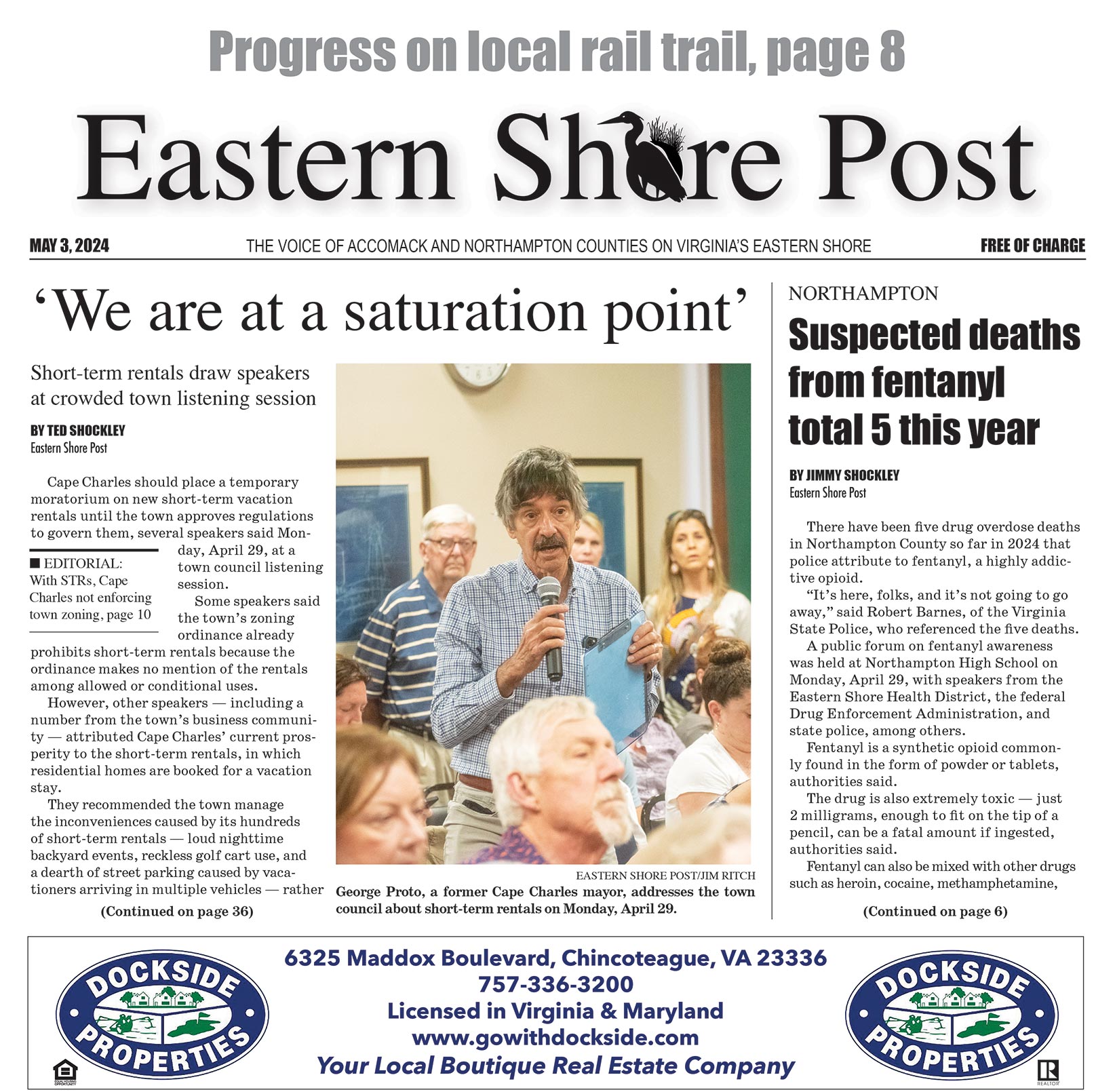Dear Editor:
As the Town of Cape Charles moves ever closer to selling its water and wastewater utilities to Virginia American Water, there remain several outstanding questions and concerns about the movement toward privatization.
Water utilities are a heavily regulated industry, but oversight does not mean rate stabilization or a decline in rates. And privatization does not equate to greater efficiency or long-term savings when there is minimal competition for the asset sale. Public control is often cheaper for users than privately held utilities, if for no other reason than public finance carries substantially lower rates than private capital. For example, the current town wastewater plant was funded by public grants and a 20-year, zero-interest loan of roughly $5 million. The town is approximately halfway through paying off the zero-interest loan debt service. In terms of maintenance, the recently passed infrastructure bill allocates more than $50 billion to water and wastewater programs, a substantial amount of that to state revolving funds for low and no interest loans for the maintenance and repair of such facilities. Much like how the wastewater plant was funded in the first place.
If taken at their word, and Virginia American Water invests $10 million into water and wastewater systems, it would be startling to suggest that rates could, or would, actually decrease after the three year rate-lock period. Rate increases are approved by the State Corporation Commission (SCC) and increases are not specific to a municipality, but approved by the commission based on investment, operating cost, and profit margin. The SCC is not in place to govern rates, but to protect consumers from unreasonable terms and conditions.
In November, Virginia American Water requested rate increases in excess of $14 million to be spread across all Virginia water service customers. If approved this would result in increases between $3.52 and $7.92 across all serviced areas per month, keeping in mind this is only the water portion of the monthly bill. In the near future, the fluctuation in rates will stabilize (among Virginia American customers), and each customer will pay the same base rate (as per Senate Bill 1492) allowing for the consolidation of rates across the company’s residential districts within the state and effectively lumping the future of Cape Charles rate increases in with the infrastructure needs of Alexandria, Hopewell, and other larger serviced municipalities.
Not only does finance differ greatly, so too does accountability. Private water utilities spend hundreds of millions of dollars on infrastructure, operation, and maintenance costs. This is not done in the name of public service. The private sector is primarily accountable to their shareholders, not the public. And while the utility will have to request and gain approval to raise rates, this is not a process that lends itself to citizen input. On average, private water utilities cost citizens nearly 60% more than publicly owned water.
The point here is not to argue that the town of Cape Charles does not need the funding, support, and knowledge that come with a deal of this magnitude, but that other options such as outsourcing management and operations should be entertained before selling the town’s most valuable assets. An open and honest discussion of these options, as well as the analysis and projections of alternative actions would be helpful.
There is no undoing a sale of our water utilities; and while the short-term benefits are many, it is imperative we consider the long-term consequences of such an action.
Martin Mayer,
Cape Charles



